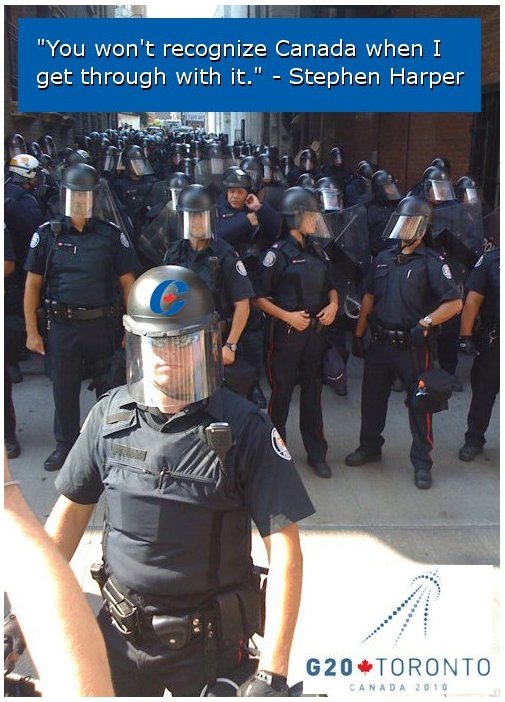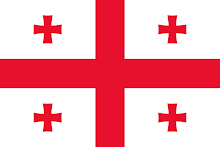On March 12, 2008, I posted a blog about my suggestions to reform the House of Commons and Senate in Canada. I still think these suggestions are as relevant today as they were last year.
I think about the three main options that the federal and provincial governments can do to reform the Senate:
- Abolish the Senate. This would be efficient as we would no longer need to pay unelected people to sit in the House of Senility. However, people who live in the small and medium populated provinces will eventually complain about representation again. Without any kind of Senate, there won't be any incentive for the people living in the smaller provinces to share power with people living in Ontario and Quebec. The federal parliament will never get any new powers.
- Keep the Senate as it is. We can keep praying for the Senate messiah. Someday, some charismatic person living in the Alberta or elsewhere will realize that Senate reform will never happen within Canada. If regional tensions increase in the future, Senate reform will become a sideshow to separation.
- Reform the Senate. Make it elected by the people. There are other matters to deal with an elected Senate such as the provincial/territorial seat distribution and effectiveness of the elected Senate.
I present to you (again) my solution to reform the House of Commons and Senate (originally published on March 12, 2008).
http://skinnydips.blogspot.com/2008/03/canadian-house-of-commons-and-senate.html
I am presenting my proposal to reform the House of Commons and Senate. This proposal does not cover every conceivable topic related to Canada's parliament. It touches on key points such as the distribution of seats in the House of Commons and Senate, the roles that members of Parliament play as they represent their constituents on a local, provincial/territorial, and bi-cultural/bi-national nature of the country.
My proposal is designed to be fair. It changes the assumptions that members of the House of Commons can only represent their constituents based on population and Senators only represent their constituents based on some form of regional/provincial/territorial status. My proposal provides multiple roles for members in both the House and the Senate.
My proposal is designed to be flexible and meet the needs of Canadians based upon where they live according to their population, the province or territory where they may live, and the linguistic community where they may live.
In terms of linguistic community,
MPs and Senators linguistic status would not be determined by a means test delivered by a Speaker of the House of Commons or Senate. It would be determined by the numbers or percentage of people within each province/territory who speak English or French as a first official language. A parliamentarian whose mother tongue may be English but lives in Quebec would represent the Francophone national community. Likewise, a parliamentarian whose mother tongue may be French but lives outside Quebec would represent the Anglophone national community.
Next, while Quebec may be perceived as having special status, its
MPs and Senators would not have an overall veto over any bill in Parliament.
Finally, if every MP and Senator from Ontario and Quebec supported a bill and every other MP and Senator opposed a bill, then the bill would not pass. The bill would only have the support of
MPs representing two of13 provinces/territories. In the Senate, the Ontario and Quebec Senators would represent a minority of Senators and a minority of provinces/territories. Within the Anglophone national community, Ontario would represent a minority of Anglophone Senators (around 25 percent).
My Proposals for Reforming the House of Commons and Senate of Canada
Why?
Canada needs a system of decision making that better reflects the needs of the population as a whole, the provincial and territorial regions, and the linguistic/national communities.
What is proposed?
Both the House of Commons and the Senate need a redistribution of seats that better reflects the population and
socio-regional communities of Canada.
Next, the current members of the House of Commons and the Senate perform a single function of officially representing their communities. The members of the House of Commons represent their constituents based on population. The members of the Senate represent their regions.
My proposal would legally have the members of both houses of Parliament, when they vote on bills, represent their constituents based on either population (House of Commons) or partially on population (Senate). In each house, the members would also represent their provinces/territories and their linguistic national communities. Currently the national communities would consist of the Francophone majority province of Quebec and the Anglophone majority provinces combined.
A bill being voted on in Parliament would require broad approval:
The House of Commons would be the primary house. A bill could be successfully passed if a majority of the members approve over those opposed. Conditionally, the bill would also require the approval of the members who represent (1) a majority of the provinces/territories and (2) the national communities (Quebec and rest of Canada) over those opposed. If one or both of the conditional requirements could not be met in the House of Commons, then the Senate would be required to vote on the bill with a majority of Senators in support over those opposed.
This proposal is not designed to be perfect. It does, however, allow for a broader requirement for acceptance when the members of the House of Commons and Senate vote on bills. This proposal is designed for flexibility when determining if a bill has received broader acceptance beyond a simple majority of members living in a limited number of regions.
My proposal is fair and flexible.
1. It offers a fair distribution of seats among the provinces/territories in the House of Commons and Senate.
2. It ensures that bills on third reading will require the support of a majority of
MPs over those opposed and in the Senate if needed.
3. It is flexible in offering a broader regional/linguistic endorsement of all bills. If
MPs and Senators are elected on the basis of some form of proportional representation, coalitions among political parties are workable across either territorial or linguistic lines. Parliamentarians will be able to vote on and pass bills without the worry of having a straight-jacket placed upon the institutions of parliament. [Note: Without Excel, I cannot show you the possibilities of single parties or coalitions of parties forming governments. A "super" majority of parliamentarians required to approve a bill that includes regional and/or linguistic support would need the support of about 55% of
MPs and Senators.]
Representation in the House of Commons
The seats in the House of Commons shall be distributed to the provinces and territories based on their populations. The seats shall be rounded up to the nearest whole number.
Distribution of seats in the House of Commons
- Newfoundland and Labrador 6
- Prince Edward Island 2
- Nova Scotia 10
- New Brunswick 8
- Quebec 78
- Ontario 125
- Manitoba 12
- Saskatchewan 10
- Alberta 34
- British Columbia 42
- Yukon 1
- Northwest Territories 1
- Nunavut 1
- Anglophone national community 252
- Francophone national community 78
- Total 330
The members of the House of Commons, who shall represent their constituents based on population, shall collectively represent their constituents based on provincial/territorial regional status and their territorial national community (Anglophone Canada-
RoC and Francophone Canada-Quebec).
Representation in the Senate
The seats in the Senate shall be distributed to the provinces and territories based on the square roots of their populations. The seats shall be rounded up to the nearest whole number.
Distribution of seats in the Senate
- Newfoundland and Labrador 4
- Prince Edward Island 4
- Nova Scotia 6
- New Brunswick 6
- Quebec 16
- Ontario 20
- Manitoba 8
- Saskatchewan 6
- Alberta 12
- British Columbia 12
- Yukon 2
- Northwest Territories 2
- Nunavut 2
Half the Senators from each province and territory can be elected every three years.
Passing a bill on third reading
Method 1:
House of Commons • Approval by a majority of the
MPs over those opposed representing both: a majority of the provinces/territories over those opposed. (Ties or no votes within a province or territory would count neither in the affirmative nor negative); and a majority of the national communities (English-
RoC & French-Quebec).
Royal Assent
Method 2:
House of Commons • Approval by a majority of the
MPs over those opposed.
Senate • Approval by a majority of the Senators over those opposed.
Royal Assent
Note: With both methods, the Senate may introduce bills first according to the Constitution Act, 1867.
Members of the House of Commons and the Senate could use some form of electronic voting so that the results could be easily tabulated.
Questions one may ask:
1. Why should each northern territory get the same regional vote as Ontario?
This is understandable. However, any governing party or coalition should be able to obtain seats in at least one or two of the three northern territories. It makes sense that parties and coalitions seek support across Canada. Besides, coalition governments could go after support from
MPs representing linguistic communities instead of provincial/territorial regions. This system of parliamentarians voting on bill is designed to be flexible. Coalitions should be able to represent a majority of the
MPs representing either a majority of the provinces/territories or linguistic communities (national communities).
2. Why should Quebec be treated specially?
It is not that Quebec is being treated specially. It is just that it is the only province that has a majority of people whose first official language is French. All the other provinces have English-speaking majorities. If in the future (in theory) a majority of people in New Brunswick speak French as an official language or if Quebec splits into theoretical Francophone provinces of North Shore Quebec and South Shore Quebec, the French and English speaking communities in Canada could still be protected under this proposal as there would still be provinces with French and English speaking majorities.
3. Some provinces would lose their percentage of seats in the House of Commons. Is that fair?
Newfoundland, PEI, Nova
Scotia, New Brunswick, Manitoba, and Saskatchewan would lose seats. However, these provinces would gain status as being provinces equal to all others in terms of regional representation within the House of Commons. For example,
MPs from PEI who may oppose a bill would have the same amount of authority as
MPs from Ontario who may support a bill when determining regional approval. The same holds true for all other provinces and territories including Newfoundland, Nova
Scotia, New Brunswick, Manitoba, and Saskatchewan.
4. How about First Nations representation?
This proposal is flexible to include First Nations peoples as both a regional territory and national community. Seats for First Nations could be apportioned from existing provincial/territorial populations and combined to form a multi-seat unit. Representation could either include or exclude the people who do not live on reserves/First Nations territories. That could be up for discussion. Note: First Nations peoples would not get a double vote but have one vote in choosing either Aboriginal or provincial/territorial
MPs. The same holds true for selecting Senators.
5. What about future provinces/territories?
Again, this proposal is flexible to allow for additional provinces.
6. Is the distribution of seats in the Senate fair?
The seats are distributed based on the square root of the population of each province and territory. If all the provinces and territories have complaints about the distribution of seats, then something must be right overall.
7. How about provincial/territorial representation within the Anglophone national community in the House of Commons?
The distribution of seats among the Anglophone provinces would be based on the provincial/territorial populations in the House of Commons and based on the square root of the populations in the Senate. In the House of Commons, the Ontario members would represent about 50 percent of the Anglophone national community; the four western provinces – 39 percent; the four Atlantic provinces – ten percent; the three northern territories – just over one percent.
8. How about provincial representation within the Francophone national community in the House of Commons?
Since Quebec is the only province with a Francophone majority, it shall assume the status as a national community. If, in theory, Quebec split into two or more Francophone majority provinces, then collectively these new provinces would form the Francophone national community.
9. Could the parliamentarians from Ontario and Quebec alone pass a bill without the approval of
MPs and Senators from the other provinces and territories?
If all the
MPs and Senators from Ontario and Quebec supported a bill and if the rest of the
MPs and Senators from the other provinces and territories opposed the bill; then the bill would not pass. Even though Ontario and Quebec represent a majority of
MPs within the House of Commons, these two provinces do not represent a majority of provinces and territories (2/13). The bill would need approval of the Senate. Since Ontario and Quebec still represent only 2 of 13 provinces/territories, the bill would not have approval from Senators representing a majority of provinces/territories. Ontario and Quebec would also only have 38 of 100 Senators. A bill would be defeated based on the lack of support from a majority of Senators. Linguistically, while Quebec Senators could guarantee the support of Senators representing the Francophone region, Ontario Senators would only carry about 25 percent of the Senators representing the Anglophone region. One out two linguistic regions supporting a bill does not represent a majority. The bill could not pass.
10. Should the distribution of party seats be based on proportional representation?
That could be up for discussion. My proposal is adaptable to different methods of selecting parliamentarians to the House of Commons and Senate. Members of either the Commons or Senate could be elected by the citizens of Canada, appointed officially by the Governor-General, or selected through some other method such as being chosen by their provincial premiers or legislatures. If the members of Parliament are elected by the citizens, the election of members can be decided by the current first-past-the-post system or some proposed form of proportional representation.
11. Should the Senators be chosen at the same or different times from the members of the House of Commons?
If voters elect Senators and members of the House of Commons at the same time, the average difference in percentage of seats that each party would receive in the two chambers of Parliament would be about 2½ percent with a maximum difference of about five percent. Even though the distribution of seats for each province/territory in the House of Commons and Senate would be different, each party would receive about the same percentage of seats nationally.
The differences in seat distribution percentages may become greater if members of each chamber are chosen in different election periods rather than simultaneously.
Conclusion
My proposal to reform the decision making process in Canada's parliament will modify the distribution of seats within the House of Commons based on population of each province and territory. Within the Senate, the distribution of seats will be based on the square root of the population of each province and territory.
It ensures that bills on third reading will require the support of a majority of
MPs over those opposed and in the Senate if needed. This will ensure that all bills will have the support of
MPs representing a majority of Canadians.
It is flexible in offering a broader regional/linguistic endorsement of all bills. Bills will not only require the support of a majority of voting
MPs, approval of these bills will also require the support of
MPs who represent either regional or linguistic territorial communities. Flexibility is also ensured by either having the members of the House of Commons alone vote on bills, or have members in both the House of Commons and Senate vote separately on bills if the highest threshold of approval cannot be guaranteed within the House of Commons—approval required from a majority of voting
MPs representing both a majority of provinces/territories and a majority of linguistic regions.
This proposal to reform the House of Commons and Senate is something Canadians should consider.
Here are some results based on my proposal (published on October 17, 2008).
http://skinnydips.blogspot.com/2008/10/could-reformed-house-of-commons-and.html

I am reposting this blog with a clickable link of my graph on the left side.
Last March, I posted a
proposal to reform the House of Commons and Senate in Canada. My proposal would have a House of Commons with 330 seats apportioned by population of each province and territory and a Senate with 100 seats apportioned by the square-roots of the provincial and territorial populations. Half of the senators would be elected every three years.
Below is the distribution of seats for each party by province and territory in both the House of Commons and Senate. For the Senate I used both the 2006 and 2008 election results to represent a rolling Senate with half of the Senators being elected every three years.
If you cannot click on the image to get the results, here are the highlights:
House of Commons seats by proportional representation:
Conservative: 130
Liberal: 88
NDP: 61
Bloc
Québécois: 31
Green: 20
Total: 330
Majority: 166
Senate Seats:
Conservative: 43
Liberal: 29
NDP: 21
Bloc
Québécois: 7
Green: 0
Total: 100
Majority: 51
The Conservatives would be able to form a coalition with either the Liberals or
NDP. They would be able to pass bills in both the House of Commons and Senate. There would be little or no Senate paralysis that some nay-
sayers of Senate reform might indicate. The only difference in the Senate is that there might be a more regional examination of some issues by the Senators in their committees.
I would like to note that the Green Party would have a difficult time getting seats in the Senate because the Senate is a smaller chamber than the House of Commons. Also, if elections for Senate seats were decided provincially/territorially rather than nationally, and if half of Senators were elected, the Green Party would need to achieve about 20 percent of the vote in a province to get a Green candidate elected to the Senate. Unfortunately, an elected Senate with Senators elected by some form of proportional representation would not be kind to parties that receive a very small number of votes. I would still consider the Green Party to be a micro-party. As a consolation prize, the Greens would have 20 out of 330
MPs in the House of Commons under my proposal.
Some of you may prefer a Triple-E Senate or some other distribution model. Others may want the Senate abolished. I just wish to point to you reading this blog-post that it is possible to have an elected Senate to coincide with an elected House of Commons that can function well with each other. The Senate will not paralyze the work of the House of Commons.
Let's reform both the House of Commons and Senate.
















